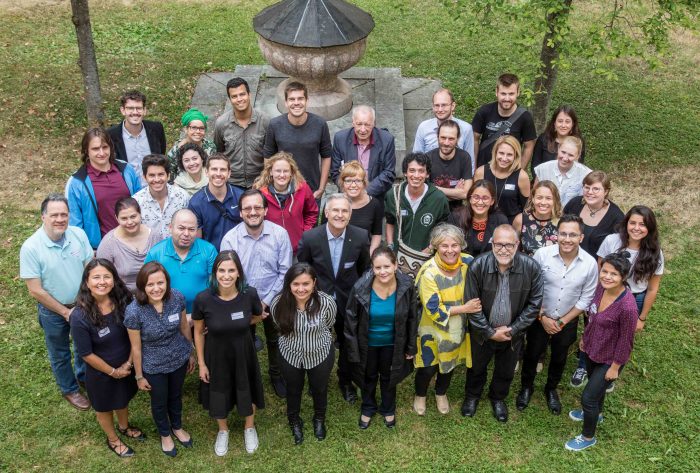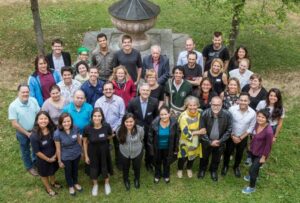
Workshop on transitional justice and memory at KU Eichstätt-Ingolstadt

The transitional justice process in Colombia and the memory initiatives around this mechanism implemented by different populations was the central theme of the workshop: “Transitional Justice and Memory: Colombia in a Latin American Perspective”, held on July 11 and 12, 2019, at Katholische Universität Eichstätt-Ingolstadt in Germany.
The meeting was organised by this university, the CAPAZ Institute, the Justus-Liebig University Giessen Peace Chair, the Hanns Seidel Stiftung Foundation and the proFOR+ programme (KU Eichstätt-Ingolstadt).
Thematic agenda
One of the issues most discussed during the meeting was the incidence of social inequalities, such as gender and ethnicity, in the construction and transmission of memory and access to truth, justice, and reparation in the Colombian context.
The paper by Prof. Dr. Stefan Peters (CAPAZ/JLU Giessen) pointed out the importance of considering social preconditions such as education, or power relations based on discrimination, as factors that explain “non-memory” conjunctures or memories that remain underground during a society’s processes of peace and reconciliation.
Ángela Santamaría (Universidad del Rosario) and Laura Rivera (Universidad Andina Simón Bolívar) presented their study on the situation of indigenous women, including ex-combatants, who seek access to justice and a space to build memory by their own means and beyond legal languages.
Juliana González Villamizar’s contribution (CAPAZ/JLU Giessen) focused on intersectionality as a critical approach to social inequalities, and the potentialities and challenges involved in its implementation in contexts of political transition. In her presentation, she took into account the experience of truth commissions in South Africa, Guatemala, and Peru.
The meeting also highlighted the struggle of victims’ organisations for the truth, in particular, the case of the relatives of forcibly disappeared persons and victims of state crimes. In this respect, the question arose about the reasons that would explain why in Colombia, unlike other countries of the Southern Cone where generalised forced disappearance also occurred, we speak of a “debt to memory”, as proposed by Yuly Paola Flórez (Universidad Libre).
Lorena Vega and Vanessa Suelt Cock (Pontificia Universidad Javeriana) complemented this vision through preliminary results of their research on the possibilities of reparation currently offered by the Special Jurisdiction for Peace (JEP) mechanisms of participation, from its territorial components.
(Text: Juliana González Villamizar. Revision: Claudia Maya. English version: Tiziana Laudato)



